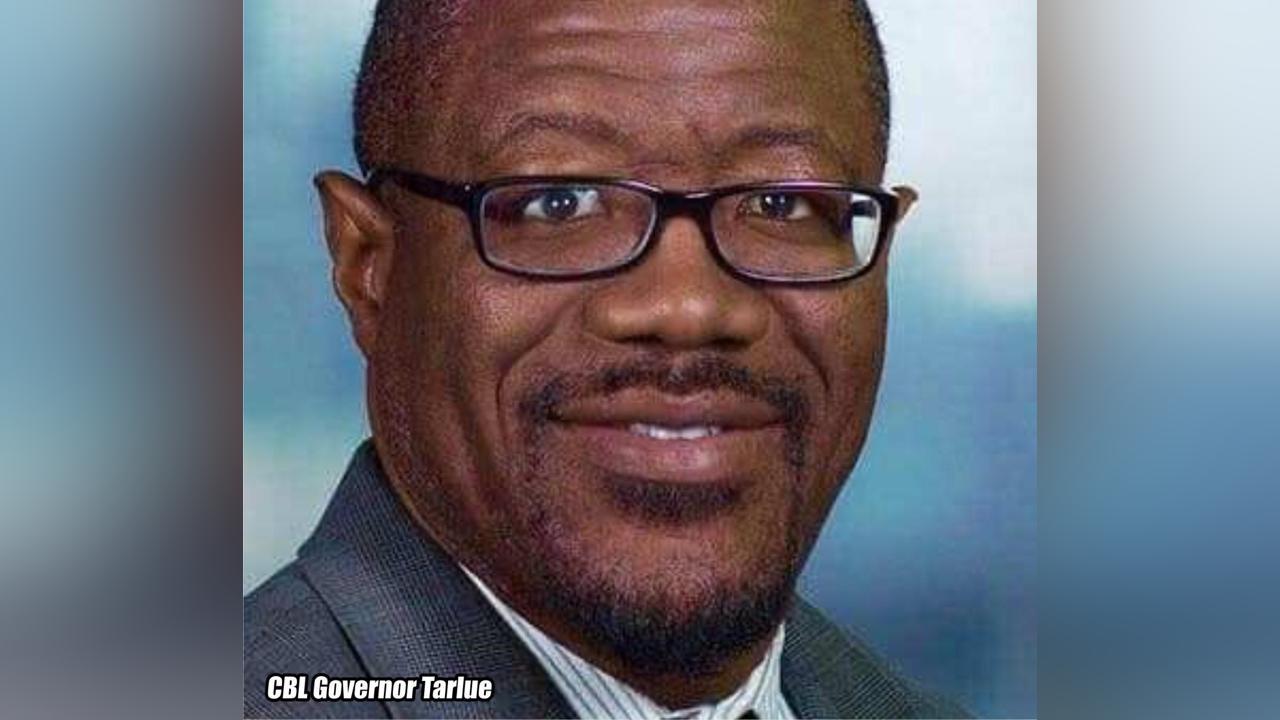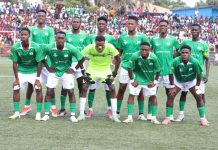Africa-Press – Liberia. Supreme Court Justice-in-Chambers Yussif D. Kaba on Friday, August 9, granted embattled Central Bank of Liberia (CBL) Executive Governor J. Aloysius Tarlue’s request for a prohibition against his suspension, pushing the matter now before the full Bench of the Supreme Court.
The date for the hearing before the full bench of the Superior Court has not been announced, Bu the ruling by the Justice-in-Chambers so far indicates that Tarlue’s prohibition will lie for now.
Mr. Tarlue has petitioned for a writ of prohibition before the Supreme Court to challenge President Joseph Nyumah Boakai’s suspension order, describing it as illegal and in flagrant violation of the Act establishing the CBL.
President Boakai suspended Governor Tarlue on July 30, 2024, based on an Auditor General’s report on the GAC’s compliance audit of the CBL for fiscal periods 2018-2023.
On Tuesday, August 7, Justice Kaba heard from both parties in chambers following a citation for their appearance.
A source close to the meeting told this paper that Government lawyers had argued that the President’s constitutional right to appoint and dismiss was exercised in the instant case, while also citing an older American case law that was debunked by Taylue’s lawyers with a most recent version which supersedes the former.
Lawyers representing Mr. Tarlue headed by Cllr. Tiawon Gongloe also countered that President Boakai may have the appointment power as prescribed in Article 56 (a) of the 1986 Constitutions, but there are procedures to follow, something Mr. Tarlue is challenging at the Supreme Court.
Mr. Tarlue argued that the law controlling the removal of the CBL’s Executive Governor does not support his suspension.
He argued that his suspension is arbitrary, inconsistent with governance by the rule of law, and constitutes a wilful violation of the Amended and Restated Act establishing the CBL (1999) without any legal jurisdiction.
Section 14.4 of the Amended and Restated CBL Act states that the Executive Governor, non-executive Governor, or Deputy Governor shall be removed by the Senate from office only upon a Bill of Impeachment (emphasis supplied) submitted by the House of Representatives.
The provision gives grounds on which the officials can be impeached, which includes gross breach of duty, misconduct in office, conviction of a felony, and declared bankrupt.
Other grounds include disqualification or suspension from practicing his profession in Liberia by order of a competent authority made in respect of him personally and being adjudged or otherwise declared to be a person of unsound mind or incapable of properly performing the functions of the office owing to ill-health.
Tarlue also asserts that his suspension violates Article 20 (a) of the 1986 Constitution.
Article 20 (a) states that no person shall be deprived of life, liberty, security of the person, property, privilege, or any other right except as the outcome of a hearing judgment consistent with the provisions laid down in the Constitution and in accordance with due process of law.
The embattled CBL executive governor argued that his suspension without pay was equivalent to removal and was done without a hearing.
In his petition before the Supreme Court, he further argued that the GAC should, by law, submit all “Final Audits” to the Legislature, which oversees the General Auditing Commission.
Accordingly, Tarlue contends that President Boakai’s suspension of him without allowing him to be heard by the appropriate committee of the Legislature constitutes a violation of the doctrine of separation of power under the Constitution of Liberia.
He noted that removing the Executive Governor of the CBL by law is exclusively the function of the Legislature and not the Executive Branch of Government.
Tarlue also contended that President Boakai violated Section 14.1 of the Amended and Restated Act establishing the CBL when he appointed an acting Executive Governor who is an immediate General Manager of a Competing Commercial Bank.
Section 14.1 of the Amended and Restated Act establishing the CBL states that no person shall serve or remain an Executive Governor, non-governor, or Deputy Governor of the Central Bank of Liberia who is an official or salary employee of a government or other public entity except a teacher or professor in a university.
The provision continues that no person shall serve or remain an Executive Governor, non-governor, or Deputy Governor of the Central Bank of Liberia who is an official of a political party, an official or employee of a financial institution, or beneficiary owner of an equity interest in a financial institution.
“The petitioner asserts that prohibition will lie to undo what has been illegally done by the respondent from proceeding further to commit illegal acts against the petitioner,” he added.
Tarlue said if the government is not prohibited from such acts, such arbitrary action may be a precedent for the removal of other protected officials, including members of the Supreme Court, through suspension.
For More News And Analysis About Liberia Follow Africa-Press






